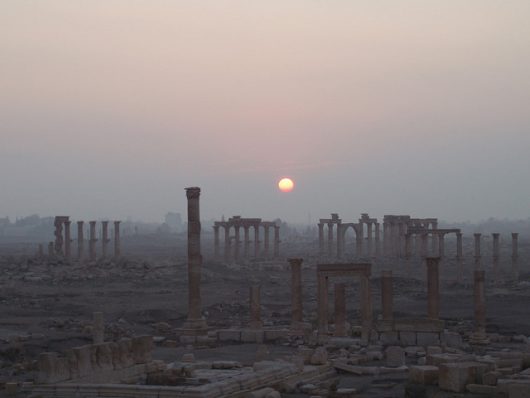Attacks in Syria Targeting Syrian Healthcare Workers

The Geneva Convention declared in 1949 that targeting healthcare workers and hospitals is a violation of international humanitarian law. Yet in the past six years of conflict, more than 800 Syrian healthcare workers have been killed. More than half were due to bombings or shelling; at least 160 of these deaths were due to either torture or execution. The Syrian government and its allied forces are held responsible for 92 percent of these healthcare worker killings.
An analysis of attacks on healthcare facilities indicates that certain facilities are targeted to cut off access to care and potentially force civilian displacement. Repeated attacks on facilities are noted, with one specialty hospital built in a cave bombed six times already in 2017 and 33 times in the past three years. In 2016, there were almost 200 reported attacks on healthcare facilities.
Not only are healthcare workers in danger, but the attacks on healthcare facilities and the overall destruction due to conflict leaves many facilities without electricity, water or necessary equipment to treat and diagnose patients. In 2016, 95 percent of the doctors who had once worked in Aleppo, formerly the most populous city in Syria, had fled. Current estimates are that only 42 percent of the Syrian population lives in an area with a sufficient proportion of healthcare workers, while almost one-third live in an area where there are no healthcare workers at all.
Conflicts between Syrian healthcare workers and the government have been ongoing since 2011, when healthcare workers were arrested during protests. In 2012, the Syrian government declared that it was a crime to provide medical care to any persons injured in anti-government protests. Current targeting patterns indicates that the Syrian government views any facilities in opposition-controlled areas as terrorist affiliates and therefore legitimate targets.
Because of the low number of Syrian healthcare workers and the dangers they face, many healthcare professionals are trying to find innovative ways to help from outside of the country. A network of underground hospitals has been established, and cameras are being installed in facilities so that doctors can monitor patients and provide consultations remotely. Phone lights are used in underground hospitals that do not have access to electricity.
These solutions are beneficial, but until there is an end to the violence, Syrian healthcare workers are likely to continue to be targeted and care for victims of the conflict will suffer.
– Nicole Toomey
Photo: Flickr
